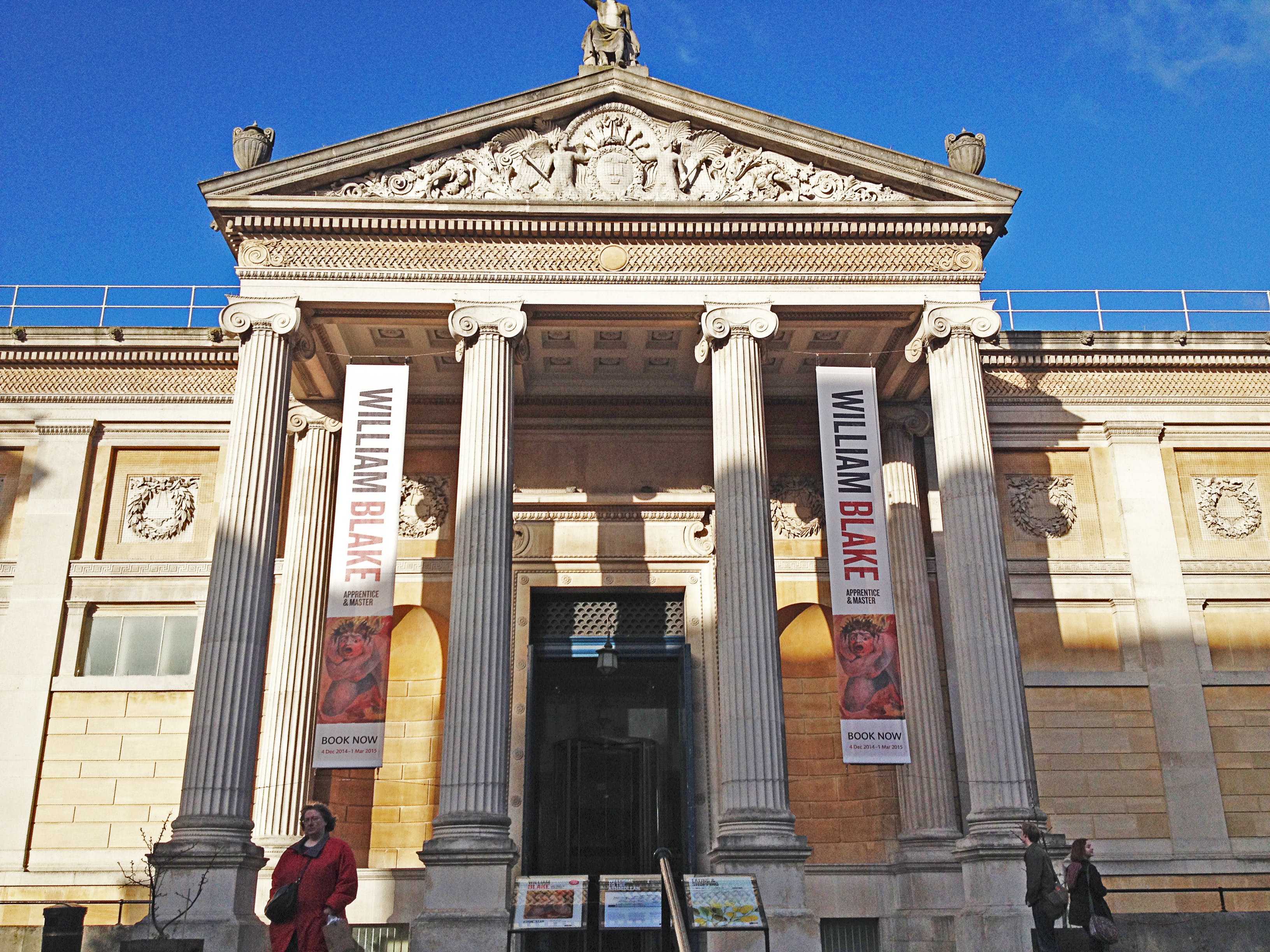I think they have. I was hugely relieved to see the graceful pillars in the main foyer (the ones through which one used to reach China) still intact. And I was stunned by the light and space, sheet glass and general shininess of Rick Mather's new bit. There are now lots of unexpected glassed-in viewpoints where you can catch sight of your friends in other galleries on the far side of stairwells - rather fun. They've taken advantage of the space to present lots of extra displays - in fact they've got twice as much of their vast collections on show than ever before.
There's been a chance to reorganise some of the familiar collections, too. Western Art is now divided more logically into a sequence of phases - Pre-Raphaelites, Dutch & Flemish, 20th century etc. My favourite landscape paintings by William Inchbold now hang together rather than being isolated in separate rooms, so I've finally had the pleasure of comparing them directly.
Some of the rearrangements provide particular satisfaction to the staff. A new room of musical instruments is hung with precious tapestries (remember the tapir? And a fruit-hung garden with musicians and a peacock). As Timothy Wilson, the curator of Western Art explains "Not only do they benefit from the same conditions of temperature and air and light, but traditionally a music room would have been lined with tapestries to improve the acoustics". A happy thought, to reunite the two.
I noticed greater detail in labelling, providing not only more detail on individual items but more extensive explanations of displays as a whole. Next to the gigantic stone coin (a foot in diameter) from the Micronesian island of Yap, is a photographic montage explaining how our money is made today at the Royal Mint.
This is typical of the museum's new display strategy: Crossing Cultures, Crossing Times, using comparisons of objects to "trace the journey of ideas and influences through the centuries and across continents." One of the treasured memories of my anthropology degree was wandering around the Ashmolean with the late Andrew Sherratt, an enthusiastic and inspiring guide whose particular passion was the development of such cultural journeys. It's good to see the general application of this approach.
One of the glossiest new features is the restaurant on the top floor. The café, traditionalists will be pleased to hear, is still in the crypt, but there's now a gleaming restaurant with a splendid outdoor seating area at the very top of the museum. There's also an education centre and a brand new temporary exhibition space. And a lift (I hope they do something about the rather intrusive ping it makes on arrival though).
At the preview there were still some missing labels and even a few empty cases - staff have been working flat out to finish things off, and hopefully it'll all be complete in time for the public opening on the 7th November. But the design of the displays is very satisfying - everything's laid out with care and thought for the needs of each particular piece, and some lovely touches of humour.
For those who know it well, it's a little strange walking between the old and new buildings. But the new galleries have not been added insensitively and the set piece architecture is a lot of fun. It's fabulous to have access again to these exquisite treasures. The frog purse; the Alfred jewel; kettles, vases and screens covered in animals from dragons to mice; Roman, Greek and Egyptian scuplture; Chinese robes; the tiny jewel-like array of seals from Crete... The face-lifted Ashmolean is a world-class museum in the heart of our city, an amazing place to visit - and it's still absolutely free!
Images: The main stairwell
A glorious display of Greek vases
Looking through the glass walls, you can spot friends in other galleries
An extraordinary coin, over a foot in diameter, from the Island of Yap





